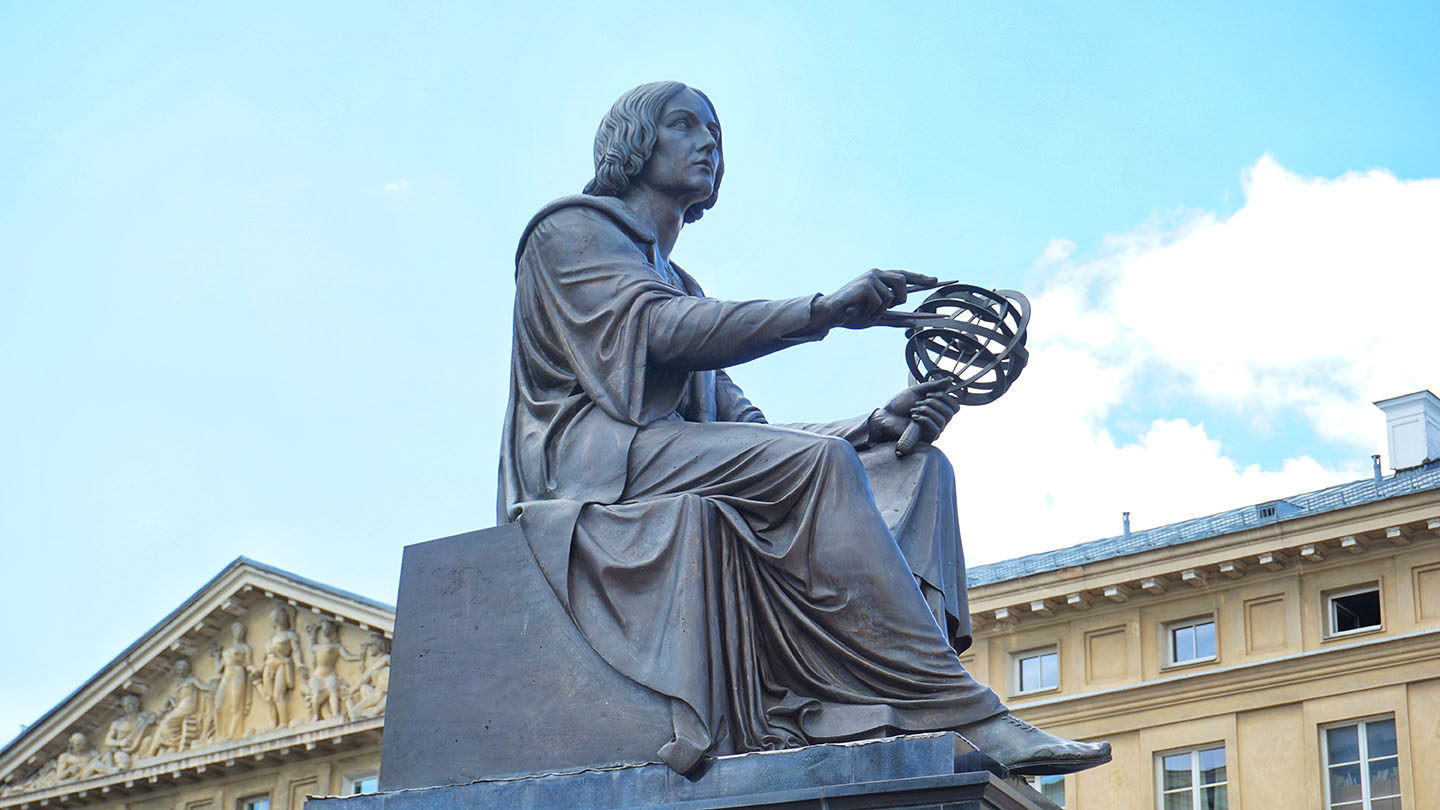

Nicolaus Copernicus was a Polish astronomer who lived from 1473 to 1543. He is considered one of the most important figures in the history of astronomy.
Copernicus's most famous work is De revolutionibus orbium coelestium (On the Revolutions of the Heavenly Spheres), which was published in 1543. In this book, Copernicus proposed a heliocentric model of the universe, which placed the sun at the centre of the universe and the planets, including Earth, revolving around it.
Copernicus's model was a radical departure from the prevailing view at the time, which held that the Earth was at the centre of the universe and that the sun and other planets revolved around it. Copernicus's model was based on his observations of the planets and his understanding of geometry.
Copernicus's model was not immediately accepted by the scientific community. It was met with opposition from religious leaders, who believed that it contradicted the Bible. However, Copernicus's model eventually gained acceptance and helped to usher in a new era in astronomy.
Copernicus's heliocentric model of the universe had a profound impact on our understanding of the universe. It helped to dethrone Earth from its central position in the universe and showed that the planets follow regular and predictable paths around the sun. Copernicus's model also helped to pave the way for the development of new astronomical instruments and techniques, which led to further discoveries about the universe.
The word "Nicolaus Copernicus" was first used in the 16th century. It was used to refer to the Polish astronomer who proposed that the Sun, not the Earth, is at the centre of the universe.

Noun: The Polish astronomer and mathematician who proposed that the Sun, not the Earth, is at the centre of the universe.
Adjective: Relating to Copernicus or his work.
The word "Nicolaus Copernicus" is a Latinized form of the Polish name "Mikołaj Kopernik." The Latinized form was used by Copernicus himself, and it is the form of the name that is most commonly used today.
The word "Nicolaus" is a Latin name that means "victory of the people." The word "Copernicus" is a Polish name that means "from Kopernik." Kopernik is a town in Poland where Copernicus was born.
The word "Nicolaus Copernicus" was first used in the 16th century. It was used to refer to the Polish astronomer who proposed that the Sun, not the Earth, is at the center of the universe.
What is Nicolaus Copernicus famous for?
Question:
Describe the key contributions of Nicolaus Copernicus to the understanding of the solar system and its impact on the field of astronomy.
Answer:
Nicolaus Copernicus, a renowned astronomer, revolutionised our understanding of the solar system with his heliocentric model. Prior to his work, the geocentric model, which placed Earth at the centre of the universe, dominated astronomical thought. Copernicus challenged this belief by proposing that the Sun, not Earth, was at the centre, with planets, including Earth, orbiting around it.
His seminal work, "De revolutionibus orbium coelestium," presented this heliocentric theory, fundamentally reshaping our perspective of the cosmos. This model provided a more accurate explanation for the observed motions of celestial bodies, including the retrograde motion of planets.
Copernicus' ideas laid the groundwork for the scientific revolution and directly influenced later astronomers like Johannes Kepler and Galileo Galilei. Kepler's laws of planetary motion and Galileo's telescopic observations further confirmed and built upon Copernicus' heliocentric model.
The heliocentric model challenged existing dogmas and encouraged the scientific community to embrace empirical observations and evidence-based reasoning. This shift in thinking paved the way for the modern scientific method and our contemporary understanding of astronomy.
Address
Developing Experts Limited
Exchange Street Buildings
35-37 Exchange Street
Norwich
NR2 1DP
UK
Phone
01603 273515
Email
hello@developingexperts.com
Copyright 2025 Developing Experts, All rights reserved.